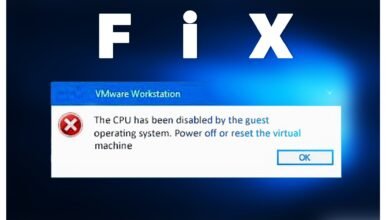Top 15 Business Promotion Platforms in 2025

Business promotion is essential for building brand awareness, attracting customers, and standing out in a competitive market. Effective promotion helps businesses connect with their target audience, creating familiarity and trust, which are crucial for conversions and customer loyalty. Through promotional activities, businesses can showcase their unique products or services, communicate value propositions, and address customer needs directly, making them more likely to choose their offerings over competitors. Additionally, in the digital era, where visibility drives success, consistent promotion across the right platforms enables companies to stay top of mind, expand their reach, and grow sustainably. Ultimately, promotion is the driving force behind growth, customer engagement, and long-term profitability.
In 2025, businesses will have access to a diverse range of promotion platforms that leverage advanced technologies and cater to specific marketing needs. Here are some of the top platforms likely to dominate:
1. Meta (Facebook, Instagram, and Threads)
- Overview: Meta’s platforms will remain powerful for businesses to connect with diverse audiences. Advanced targeting, ad formats, and enhanced analytics make Meta platforms versatile for both small and large businesses.
- Why It’s Top: Meta will likely continue improving its AI-driven targeting and immersive ad experiences, utilizing VR/AR integrations.
2. LinkedIn for B2B Marketing
- Overview: LinkedIn’s reputation as a B2B networking hub makes it essential for business promotions, especially for professionals and enterprises. It offers content sharing, ad placements, and lead generation tools.
- Why It’s Top: LinkedIn’s AI will likely enhance networking, allowing businesses to connect directly with decision-makers based on highly specific criteria.
3. TikTok and Short-Form Video Platforms
- Overview: TikTok’s short-form, highly engaging video format is ideal for quick brand messaging. Other platforms with similar formats (YouTube Shorts, Instagram Reels) are also popular for reaching a younger audience.
- Why It’s Top: Short, authentic videos will continue to appeal to audiences, especially as video marketing strengthens.
4. YouTube for Video Marketing and Livestreaming
- Overview: YouTube remains one of the best platforms for long-form video content, tutorials, product reviews, and live streaming, catering to brands that want to build trust and engage audiences in-depth.
- Why It’s Top: Its vast user base and community-building features make it indispensable for businesses focusing on content marketing.
5. Google Ads and Google Business Profile
- Overview: Google Ads provides visibility on the largest search engine, while Google Business Profile enhances local search presence, ideal for businesses wanting instant reach or local clientele.
- Why It’s Top: With advanced AI capabilities, Google’s ad targeting will become even more precise, optimizing ROI for digital ad budgets.
6. Pinterest for Visual Products and Ideas
- Overview: Pinterest is highly effective for visual industries like fashion, home decor, and lifestyle. It’s popular for driving traffic and inspiration, making it valuable for niche audiences.
- Why It’s Top: Its search-like interface and direct integration with e-commerce platforms keep it relevant for brands focusing on visual appeal and creativity.
7. X (formerly Twitter) for News and Trending Topics
- Overview: X remains a go-to platform for real-time news, industry updates, and direct customer engagement, particularly for thought leaders, brands, and tech sectors.
- Why It’s Top: New monetization options and subscription models for creators and brands keep X competitive in the business promotion landscape.
8. Snapchat for Youth-Centric Campaigns
- Overview: Snapchat’s unique format and AR filters are effective for engaging a younger audience. Its Discover feature offers brands an innovative way to build awareness.
- Why It’s Top: Its emphasis on creativity and AR tools make it appealing for brands targeting Generation Z.
9. Amazon Ads for E-commerce and Product-Based Businesses
- Overview: Amazon Ads allows businesses to promote products directly on the world’s largest e-commerce platform, perfect for retail-oriented brands.
- Why It’s Top: With extensive data and tailored ad options, Amazon Ads helps brands reach purchase-ready customers with high intent.
10. Reddit for Niche Markets and Community Building
- Overview: Reddit’s topic-specific communities are valuable for brands wanting to reach niche audiences or build engaged communities.
- Why It’s Top: Its structure allows for natural, community-driven promotion through discussions, product launches, and brand AMA (Ask Me Anything) sessions.
11. Influencer Marketing Platforms (Like AspireIQ, Upfluence)
- Overview: These platforms connect brands with influencers across social channels for collaborative campaigns, ideal for brand visibility and credibility.
- Why It’s Top: Influencer platforms offer targeted access to authentic audiences, increasing engagement rates and word-of-mouth promotion.
12. Shopify for Social Commerce Integration
- Overview: Shopify’s tools let brands sell directly on social media platforms, offering a seamless shopping experience across Facebook, Instagram, and other sites.
- Why It’s Top: As social commerce grows, Shopify’s e-commerce integrations with social media allow brands to meet consumers where they are.
13. Quora and Question-Answer Platforms
- Overview: Platforms like Quora are useful for content-based marketing, thought leadership, and answering relevant questions in ways that showcase expertise.
- Why It’s Top: These platforms offer SEO benefits and can generate leads by positioning brands as industry experts.
14. Email Marketing Platforms (Mailchimp, Constant Contact)
- Overview: Email remains effective for personalized marketing, customer retention, and relationship building, especially with segmentation and automation tools.
- Why It’s Top: Email marketing platforms are expected to incorporate more AI-driven features, making targeting and engagement smarter and more effective.
15. Web 3.0 Platforms and Decentralized Social Media
- Overview: Emerging decentralized platforms, such as Lens Protocol or Minds, allow users to own and control their data, appealing to privacy-conscious consumers.
- Why It’s Top: Web 3.0 platforms may offer businesses innovative ways to engage communities, especially as users demand transparency and data ownership.
In 2025, these platforms, with their targeted tools and advanced algorithms, will offer businesses numerous ways to connect with audiences, meet evolving demands, and enhance brand visibility across digital channels.
Conclusion
In conclusion, finding the right business promotion platforms is key to successfully reaching your target audience and achieving sustainable growth. With a range of options available, from social media giants to niche forums and influencer marketing, choosing platforms that align with your audience’s preferences and your business goals can make all the difference. The right platform not only maximizes your visibility but also enables authentic engagement, helping you build trust and loyalty with customers. By strategically investing time and resources into the platforms that best fit your brand, you can enhance your presence, optimize marketing efforts, and create a foundation for lasting success in an ever-evolving digital landscape.





